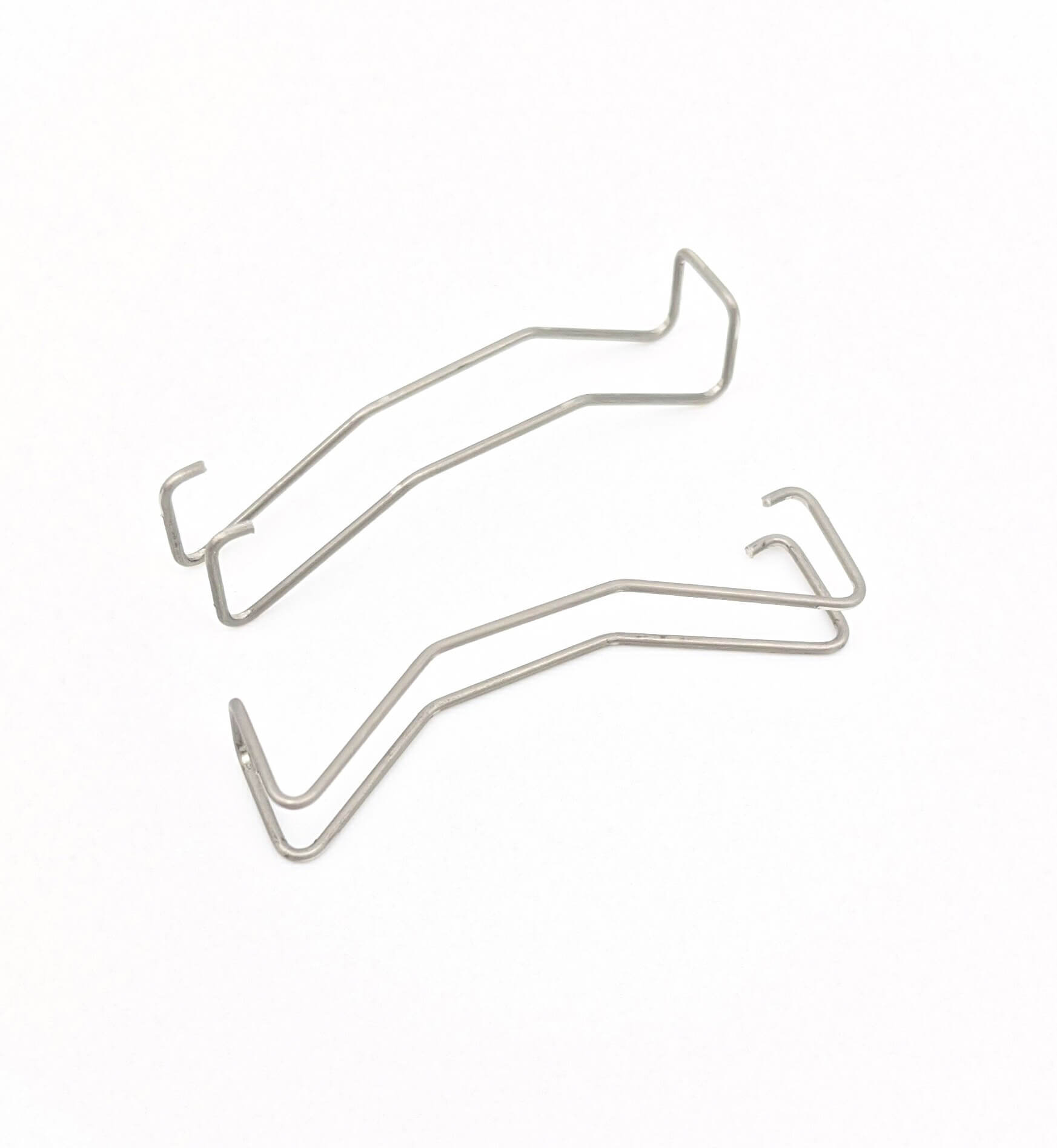Get unique, complex parts easily. No matter your requirements, Chaoyi Spring creates hard-to-produce coil springs and wire forms.
Let us help you create the custom wire form you need, from S-hooks and J-hooks to utility hooks and more.
We work closely with customers across a wide range of industries, helping them design and manufacture made-to-order parts.
Why choose Chaoyi Spring? We prioritize customer-focused collaboration, modern equipment and the latest technology to make your parts per print.
Find the information and guidance you need, from measuring a spring to learning about materials, placing an order and much more.
When it comes to vehicle suspension systems, there are two primary types: torsion bars and coil springs. Both serve the same purpose – to absorb bumps and shocks from the


When it comes to vehicle suspension systems, there are two primary types: torsion bars and coil springs. Both serve the same purpose – to absorb bumps and shocks from the road and maintain a smooth ride – but they achieve this in different ways. Understanding the unique characteristics of each system is crucial for determining which one best suits your driving needs and preferences. This article delves into the intricacies of torsion bar and coil spring suspensions, exploring their advantages and disadvantages to help you make an informed decision.

Imagine a sturdy metal rod that twists under pressure. That's essentially what a torsion bar suspension system is. It utilizes a long, solid bar made of high-strength steel that's fixed at one end and connected to the vehicle's chassis at the other. When the wheels encounter a bump or dip, the bar twists, absorbing the energy and preventing it from jolting the passengers.
Torsion bar systems are renowned for their simplicity and durability. They require fewer moving parts compared to coil spring suspensions, making them less prone to wear and tear. This translates to lower maintenance costs over the long term. Moreover, their rigid design provides a firm and responsive feel, especially when navigating tight corners or demanding road conditions.
However, the simplicity of torsion bars also comes with some limitations. They are generally less adaptable to varying loads compared to coil springs. This means that the ride might feel stiffer when the vehicle is carrying heavy cargo or passengers. Additionally, adjusting the ride height in torsion bar systems is a more complex process that often requires specialized tools.
Coil spring suspensions, as the name suggests, utilize coiled springs to absorb and dampen shocks. These springs are typically mounted vertically and are connected to the vehicle's chassis and axles. As the wheels encounter bumps, the springs compress and expand, absorbing the impact and providing a smoother ride.
The primary advantage of coil spring suspensions is their versatility. They offer a more customizable ride than torsion bars. By adjusting the spring rate, which is the stiffness of the spring, you can tailor the ride quality to your preferences. This is particularly useful for drivers who prioritize comfort and want a smoother ride even on rough roads.
Moreover, coil springs are more accommodating to varying loads. They can effectively absorb bumps and dips even when the vehicle is fully loaded. However, their more complex design can translate to higher maintenance costs, especially when the springs need to be replaced.
Now that we've explored the fundamentals of each system, let's delve deeper into their pros and cons and analyze their suitability for different applications.
**Pros:**
**Cons:**
**Pros:**
**Cons:**
Ultimately, the choice between a torsion bar and a coil spring suspension comes down to your individual priorities and driving needs. If you prioritize a firm and responsive ride and are willing to sacrifice some comfort for enhanced handling, a torsion bar suspension might be the better choice. If you value a smooth and comfortable ride and are willing to accept slightly less responsive handling, a coil spring suspension might be more suitable.
Additionally, consider your intended use for the vehicle. Torsion bars are often found in trucks and SUVs due to their ability to handle heavy loads and rugged terrain. Coil springs, on the other hand, are more common in passenger cars, where comfort and versatility are highly valued.
While torsion bars and coil springs are the most prevalent suspension systems, it's worth mentioning that other options exist. Some manufacturers utilize a combination of both systems, incorporating coil springs for the front and torsion bars for the rear, for a more balanced ride. Additionally, air suspension systems are becoming increasingly popular, offering exceptional comfort and adaptability.
Whether you're navigating city streets, tackling off-road trails, or simply cruising down the highway, understanding the nuances of suspension systems is crucial for finding the perfect match for your driving style and preferences. By carefully considering your priorities and weighing the advantages and disadvantages of each system, you can make an informed decision that ensures a smooth, safe, and enjoyable driving experience.
In conclusion, both torsion bar and coil spring suspensions play vital roles in providing a comfortable and safe ride. While torsion bars offer durability and responsiveness, coil springs excel in comfort and adaptability. Ultimately, the best choice depends on your individual needs and preferences. By weighing the pros and cons of each system and considering your intended use for the vehicle, you can select the suspension system that best aligns with your driving style and preferences, ensuring a comfortable and enjoyable driving experience.
Browse some of the custom wire forms and springs that we manufacture. Don’t see what you need? We specialize in made-to-order products that meet your application requirements.
Visit Our GalleryNeed a custom wire form or coil spring? We make it work. Fill out the contact form and a representative will respond within 1 business day. If you have a PDF or CAD file, you can submit to request a quote.